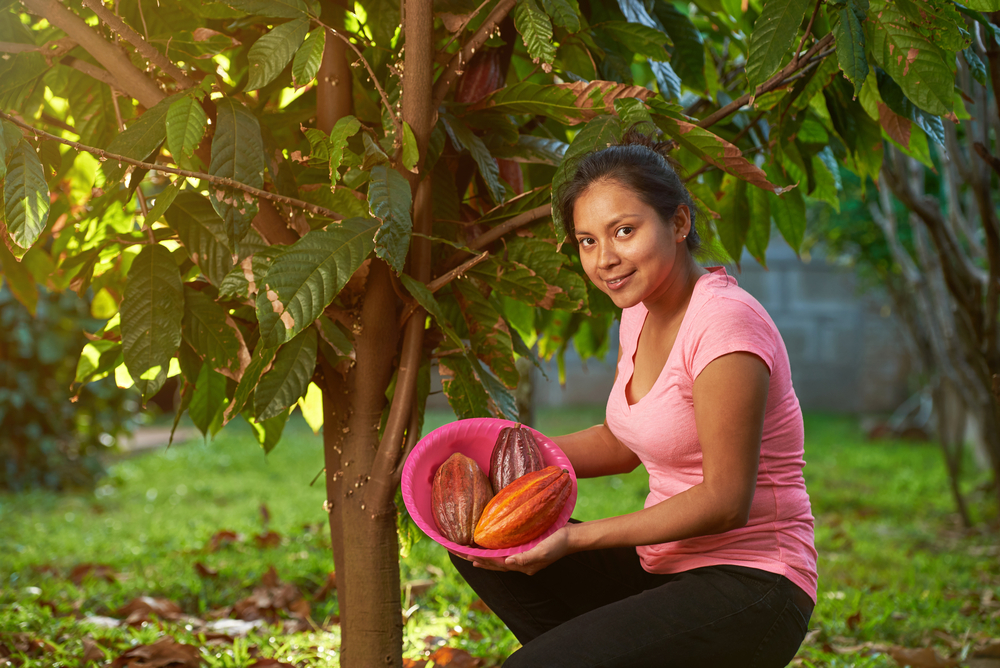The countries of the Americas arrived at the Summit last year with a jointly agreed position, set out in 16 messages with key principles that they advocated as a group and in a coordinated manner. Agreed after long days of discussions coordinated by IICA, the messages were endorsed by the ministers and secretaries of agriculture of the entire continent.

San Jose, 23 February 2022 (IICA) – In a dialogue session convened to provide follow up to the roadmaps presented at the UN Food Systems Summit, the Latin American and Caribbean countries shared details of the results achieved and the challenges they face in transforming their agri-food systems to make them more sustainable.
Representatives from Argentina, Bahamas, Bolivia, Brazil, Chile, Colombia, Costa Rica, Dominican Republic, Ecuador, El Salvador, Guatemala, Guyana, Haiti, Honduras, Mexico, Panama, Peru, and Uruguay shared their experiences during the meeting.
The Inter-American Institute for Cooperation on Agriculture (IICA) and representatives of the regional and subregional offices of FAO, IFAD, ECLAC, the Central American Integration System (SICA) and the Caribbean Community (CARICOM) also took part.
The countries of the Americas arrived at the Summit last year with a jointly agreed position, set out in 16 messages with key principles that they advocated as a group and in a coordinated manner. Agreed after long days of discussions coordinated by IICA, the messages were endorsed by the ministers and secretaries of agriculture of the entire continent.
Those same messages, which highlight the role of farmers and the key importance of agriculture as a path towards development, will continue to guide the countries’ activities, the delegates agreed.
In the run up to the Summit, there were also national dialogues, and the countries designed roadmaps on the future of food and nutrition, and the processing, transportation, and consumption of foodstuffs.
The roadmaps, which are already being implemented in many nations, are documents that establish strategies, accompanied by investment plans and the monitoring of results.
Argentina’s representative, Carola Ramón, underscored the importance of transforming agri-food systems as a catalyst for implementation of the 2030 Agenda and attainment of the Sustainable Development Goals (SDGs). In addition, she emphasized IICA’s role in the process leading up to the Summit and the achievement of a joint declaration by the countries of the Americas on the future of food and nutrition.
Speaking from Ecuador, Evelin Martillo pointed out that her country’s priority is to improve conditions for family and peasant farming, which account for 60% of national food production. She also expressed appreciation for IICA’s work in supporting the ongoing transformations.
“We established a roadmap that prioritizes four issues: the strengthening of family farming; innovation and technology in production systems; market aspects; and environmental sustainability and resilience to climate change,” explained Melina Sánchez, speaking on behalf of Panama.
The representative of Brazil, Luiz Keppe explained that his country was focusing on participation in coalitions working on issues such as school menus, healthy diets, and sustainable livestock. “A number of ministries are interested in participating in the process of transforming food and nutrition,” he noted.
In 2021, Colombia worked with organizations at the territorial level, academia, and the private sector to conduct dialogues, while the food and nutrition security committee has already approved its roadmap for the transformation process, observed delegate Zulma Fonseca.
Cecilia González from Uruguay explained the process of dialogue in her country and highlighted the permanent interaction with IICA to strengthen the technical and implementation aspects of agricultural projects.
In Mexico, a new bill on food and nutrition has been presented to Parliament. The government is also constructing the national food strategy and hopes to have it ready by March, Lizbeth Díaz announced.
Meanwhile, in Peru, Fidelina Díaz acknowledged that the past few months had been complicated for the government, but progress was continuing in validating the roadmaps for achieving the sustainable agri-food systems designed in the national dialogues. “It is a propitious moment,” she said, “because we are engaged in drafting the national food security policy and expect to conclude it in the next few months.”
The representative of the Acting Minister of Agriculture of Saint Vincent and the Grenadines, Saboto Caesar, stressed the important contribution made by IICA to the countries of the Americas with the drafting of the 16 messages and the hemispheric consensus reached prior to the Summit, and requested that this support continue for the new processes.
Saint Kitts and Nevis then underscored IICA’s support for the work aimed at achieving the sustainability of its agricultural production.
Following the countries’ presentations, IICA’s Director of Technical Cooperation, Federico Villarreal, reaffirmed the hemispheric organization’s support for the implementation of concrete actions to transform agri-food systems and thereby help achieve the SDGs.
In this regard, he explained that “IICA is strongly committed to collaborating with this hub for dialogue designed to provide follow up to the decisions taken at the Food Systems Summit. We are presently reviewing the roadmaps presented by the countries with a view to identifying concrete actions and policies that would quicken the pace of the transformations. We are continuing the joint efforts that resulted in the document containing 16 messages that the Americas took to the Summit,” he added.
The 16 key messages on the unparalleled role of agriculture emphasize the fact that agricultural producers and food system workers are a crucial and essential link, and that without agricultural production there would be no raw materials to process into foodstuffs. They also highlight agriculture as a fundamental activity for eradicating poverty, promoting rural development, and protecting the environment.
More information:
Institutional Communication Division
comunicacion.institucional@iica.int











